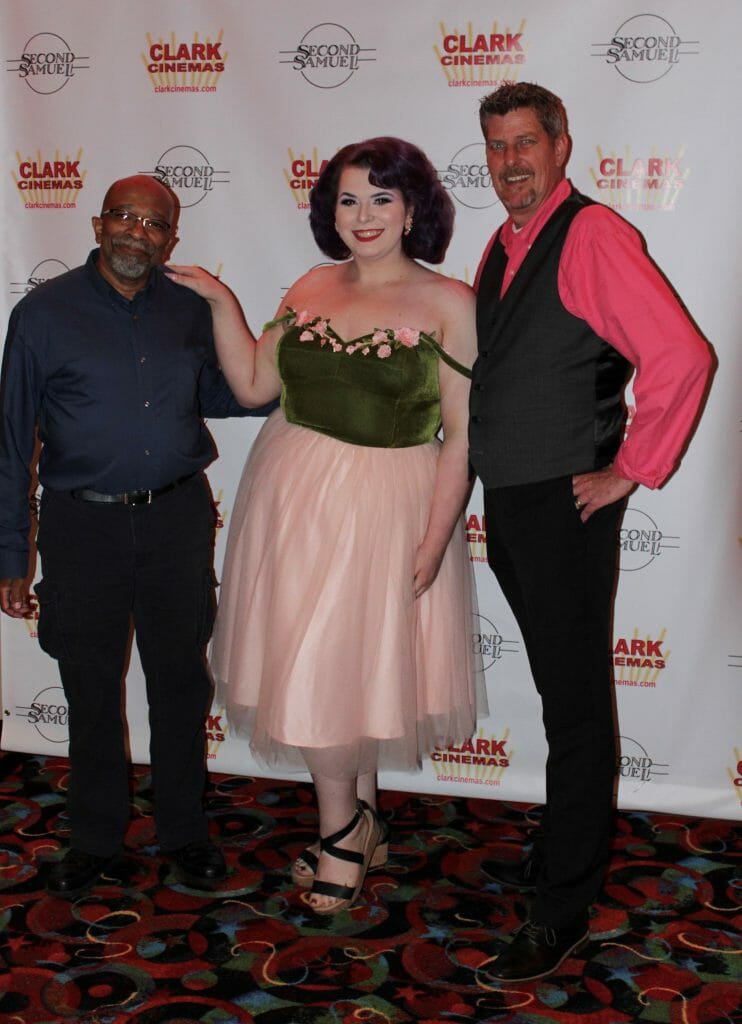Second Samuel is a film based off the stage play of the same name about a small conservative Southern town that is rocked by the passing of beloved community member Miss Tris Gertrude. Through storytelling, the town reconciles their strong Christian faith with the revelation that pillar of the community was transgender. GLAAD interviewed Second Samuel‘s director J Wayne Patterson Jr and actress Monica Helms.
1. What drew you to being involved in Second Samuel?
Monica: The story line was unique and beautiful and I felt I could do the part some justice.
J Wayne: I am a product of the South. I have seen the pain and separation caused by the inability to accept a lifestyle because of entrenched beliefs that I believe to be incorrect interpretations of scripture. What drew me to Second Samuel was the chance to retell the parable of the Good Samaritan in a way that a modern Southern audience would actually listen to the story and possibly leave changed by the message!
2. Second Samuel is about a very conservative community learning about acceptance. What do you hope audiences learn from watching?
Monica: I hope that the audience can see and appreciate the person in the movie as well as the people in the town does.
J Wayne: I really hope is that Second Samuel will start a discussion that can lead to healing in so many of the families that I have seen torn apart by these issues! I see children ostracized and cut out of family connections by a staunch conservative idea of “what is right.” Why is it more important to stand by an interpretation of a particular faith? Shouldn’t it be more important to maintain a loving, cohesive family? Why are individuals who walk an LGBTQ path forced to have “the Family they Chose…” rather than simply have… family?
3. The character of Miss Tris, a transgender woman, is central to the story, but doesn’t speak much. What’s it like having her story told through other characters?
Monica: Interesting. I am not an actor, so the life and experiences are told through those who can be more vocal on screen.
4. The original play never showed Miss Gertrude on stage but you depict Miss Gertrude in the movie. What impact do you hope that decision will have for other people looking to produce works that involve transgender individuals?
J Wayne: [GLAAD’s Scott Turner Schofield] brought me to the realization that just like Tris… our society need to see the individual. An Unseen Mythical Do-Gooder in the community puts Miss Gertrude back into the “They” category. That makes Miss Gertrude a statistic or a “one off” that can be ignored as an anecdote instead of being a real person. Being able to see Monica Helms’ loving performance of Miss Gertrude makes her real. It makes Miss Gertrude an individual instead of a Myth. The more we can show real people and individual struggles instead of stereotypes in generic situations… the more our society will realize we are denying segments of our population basic rights that would outrage each of us if we saw people as individuals.
5. How was working with the filmmakers, actors, and crew? Were you able to educate them about the realities of being transgender?
Monica: I completely loved working with all the people associated with the film. Many of the people associated with this film already had experienced working with and understanding trans people. I just told them my story and history to add to their knowledge.
6. What have you learned from working on this project with Monica and GLAAD’s consultant, Scott Schofield?
J Wayne: What I learned from Monica was the same patience that I saw in Scott Schofield during the process of script supervision.
Monica was as patient and sweet as Miss Gertrude herself would have been! I witnessed an extra on the set mistakenly refer to Monica by the wrong pronoun… Monica was patient but sweetly corrected them, and if she was offended, she didn’t openly respond to the offense – Like Miss Gertrude, Monica simply patted them on the arm and whispered “I’m a ‘her’ Sweetheart.” I’m not even sure Monica remembers that encounter, however, it made an impression on me. I loved Monica’s ability to issue a sweet loving rebuke that changed the mind and heart of that extra!
In the same way, Scott Schofield was patient and guiding with me personally as we made our way through the script supervision. For example, in the Play, Miss Gertrude is never seen. Originally, Pamela Parker believed this would cause an audience to create Miss Gertrude in their own imagination. Scott explained how important it was that Miss Gertrude be a real person. A person that could be seen taking care of the sick or matchmaking.













